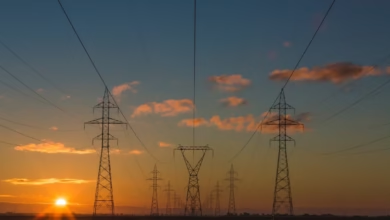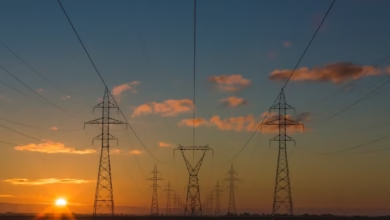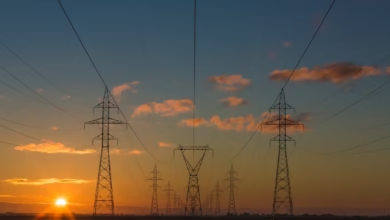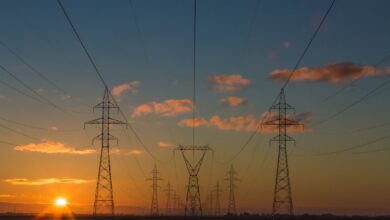Harnessing the Power of Water: The Essential Role of Hydropower in the Energy Transition and Future Innovations

As the world grapples with the urgent need to transition to sustainable energy sources, hydropower emerges as a vital player in the renewable energy landscape. Harnessing the natural flow of water to generate electricity, hydropower not only offers a reliable and efficient alternative to fossil fuels and nuclear energy but also plays a crucial role in enhancing energy security and promoting energy efficiency. In the face of climate change and shifting energy markets, the integration of hydropower into our energy policy is essential for fostering resilience and sustainability. This article delves into the multifaceted role of hydropower in the global energy transition, exploring its advantages over traditional energy sources, recent innovations in energy storage and smart grids, and its potential to shape the future of green energy. Join us as we investigate how hydropower can contribute to a cleaner, more sustainable energy economy while keeping pace with emerging trends in energy R&D and investment.
- 1. The Role of Hydropower in the Energy Transition: A Renewable Energy Solution
- 2. Comparing Hydropower with Fossil Fuels and Nuclear Energy: The Path to Energy Efficiency
- 3. Innovations in Hydropower: Enhancing Energy Storage and Smart Grids for a Sustainable Future
1. The Role of Hydropower in the Energy Transition: A Renewable Energy Solution
As the world moves towards a more sustainable future, hydropower plays a crucial role in the energy transition. This renewable energy source harnesses the power of flowing water to generate electricity, offering a clean alternative to fossil fuels and nuclear energy. With an increasing emphasis on energy efficiency and reducing carbon emissions, hydropower stands out as a reliable solution that contributes significantly to global energy trends.
Hydropower facilities can provide energy storage solutions, stabilizing energy markets by balancing supply and demand. This capability is particularly important as the integration of intermittent renewable sources like solar power and wind energy becomes more prevalent. As energy storage technologies advance, hydropower can complement these sources, ensuring consistent energy availability and enhancing energy security.
Moreover, hydropower supports energy innovations in various ways. The development of smart grids allows for more efficient energy transportation and distribution, optimizing the use of renewable resources. Furthermore, as countries continue to invest in energy R&D, hydropower can be enhanced through innovations in turbine technology and environmental impact mitigation, paving the way for sustainable energy exports.
In the context of climate change, hydropower offers a means to reduce reliance on carbon-intensive energy sources. The shift towards green energy solutions, including bioenergy and hydrogen energy, can be bolstered by integrating hydropower into national energy policies. This integration not only promotes energy security but also fosters a competitive edge in energy economics, enabling nations to navigate the complexities of energy imports and exports more effectively.
As the energy transition progresses, hydropower will remain a cornerstone of the global energy landscape, reinforcing the need for continued investment and policy development. By embracing hydropower alongside other renewable solutions, we can create a diversified, resilient energy system that meets the demands of the future while addressing the urgent challenges of climate change.
2. Comparing Hydropower with Fossil Fuels and Nuclear Energy: The Path to Energy Efficiency
As the world moves toward a more sustainable future, the comparison of hydropower with fossil fuels and nuclear energy highlights the critical role of renewable energy in achieving energy efficiency. Hydropower stands out as a leading source of green energy, harnessing the natural flow of water to generate electricity without the harmful emissions associated with fossil fuels. Fossil fuels, while historically dominant in energy markets, contribute significantly to climate change due to their high carbon emissions. In contrast, hydropower produces clean energy, making it a vital player in the energy transition.
Nuclear energy presents another alternative in the quest for energy efficiency. While it generates low greenhouse gas emissions during operation, concerns about safety, waste disposal, and high initial investments often hinder its widespread adoption. Hydropower, on the other hand, not only provides a stable energy supply but also benefits from established infrastructure, offering a more accessible route for energy investments.
When it comes to energy storage, hydropower facilities can play a crucial role. They often incorporate pumped-storage systems, which allow excess energy to be stored and released during peak demand periods, enhancing the overall resilience of energy systems. This capability is essential as the world increasingly turns to intermittent renewable sources like solar power and wind energy. By integrating hydropower into smart grids, we can improve energy transportation and ensure energy security, ultimately leading to greater energy efficiency across the board.
Global energy trends indicate a shift towards more sustainable practices, where hydropower, alongside other renewable sources such as bioenergy and hydrogen energy, plays a significant role. This shift is further supported by favorable energy policy that encourages investment in clean technologies and innovations in energy R&D. As nations work toward reducing energy imports and increasing energy exports, hydropower can become a cornerstone of a balanced energy portfolio, contributing to energy security and economic stability.
In summary, hydropower offers significant advantages over fossil fuels and nuclear energy in terms of energy efficiency and environmental impact. By prioritizing investments in hydropower and other renewable energy sources, we can accelerate the energy transition, combat climate change, and create a sustainable energy future for generations to come.
3. Innovations in Hydropower: Enhancing Energy Storage and Smart Grids for a Sustainable Future
Innovations in hydropower are crucial for enhancing energy storage and integrating smart grids, paving the way for a sustainable future. As the world shifts towards renewable energy sources to combat climate change and reduce dependence on fossil fuels, hydropower remains a significant player in the energy mix.
One of the most promising advancements in hydropower is the development of energy storage systems. Traditional hydropower plants primarily generate electricity on-demand, but innovations in pumped-storage hydropower (PSH) allow for better energy storage capabilities. During periods of low electricity demand, excess energy from the grid—often generated by solar power or wind energy—can be used to pump water back to higher elevations. When demand peaks, this stored water can be released to generate electricity efficiently, thereby enhancing energy efficiency and reliability in energy markets.
Moreover, the integration of smart grids with hydropower systems is transforming how we manage energy resources. Smart grids utilize advanced technologies to monitor and control energy flows, enabling real-time data analysis and improved energy transportation. This integration allows for a more flexible energy system that can respond to fluctuations in energy supply and demand, ensuring energy security and stability. The incorporation of distributed energy resources, including hydropower, into smart grids further supports the energy transition by optimizing the use of various renewable energy sources.
In addition to energy storage and smart grids, there are ongoing research and development efforts focused on improving hydropower technology. Innovations such as small modular hydropower systems and hydrokinetic energy converters are being explored to harness energy from low-flow rivers and ocean currents. These advancements not only diversify the energy portfolio but also align with global energy trends that emphasize sustainability and reduced carbon emissions.
As countries invest in green energy technologies, the role of hydropower in the energy transition becomes increasingly vital. By enhancing energy storage solutions and integrating smart grids, hydropower can significantly contribute to a resilient and sustainable energy future while supporting energy policies aimed at reducing reliance on fossil fuels and nuclear energy.
Ultimately, the continued investment in hydropower innovations is essential for achieving energy independence, fostering energy exports, and mitigating the impacts of climate change. This progress will not only benefit the global energy landscape but also ensure a cleaner, more sustainable future for generations to come.
In conclusion, hydropower stands as a pivotal player in the global energy transition, providing a reliable and renewable energy solution that can significantly reduce our dependence on fossil fuels and nuclear energy. As energy markets evolve, the role of hydropower in enhancing energy efficiency and security is becoming increasingly important. Innovative advancements in energy storage and smart grids are paving the way for a sustainable future that accommodates a diverse energy mix, including solar power, wind energy, and bioenergy.
Hydropower not only contributes to the reduction of greenhouse gas emissions but also supports energy policy goals aimed at combating climate change. By investing in hydropower infrastructure and research and development (R&D), we can bolster energy exports while ensuring energy imports are minimized, thus enhancing energy security. The integration of hydropower with other renewable sources will create a more resilient energy system, capable of adapting to global energy trends and meeting the demands of electric vehicles and distributed energy solutions.
As we navigate the complexities of energy economics and the need for carbon capture technologies, embracing hydropower remains essential for achieving our climate objectives. By prioritizing this green energy source, we can effectively transition towards a more sustainable, efficient, and diverse energy landscape that meets the needs of future generations.





